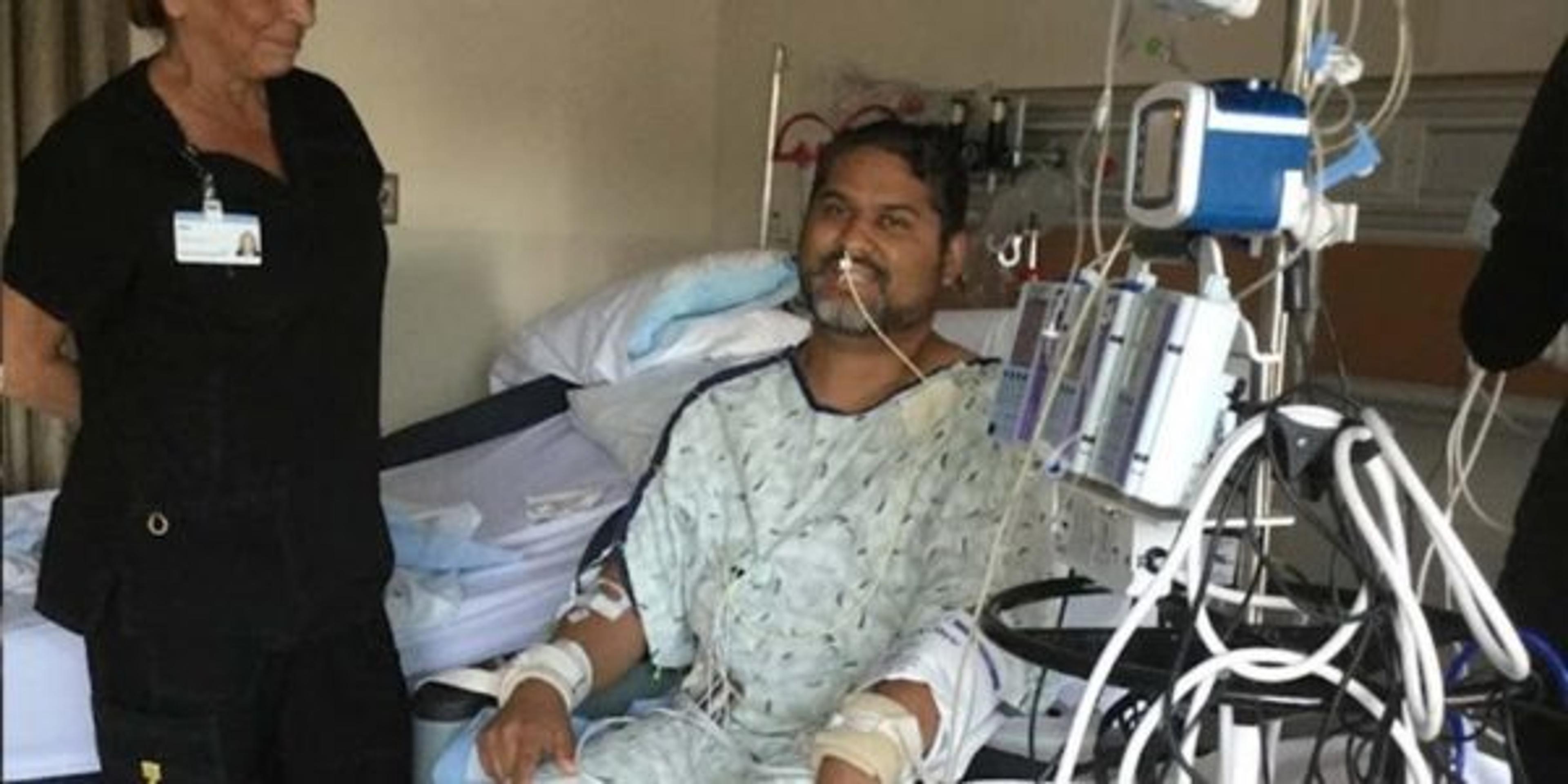Overcoming Fear of Exercise After a Stroke
Shandra Martinez
| 3 min read

For Julian Garcia, a big part of his recovery from a stroke caused by a move on the soccer field was overcoming his new fear of exercise.
Five years ago at age 38, Garcia was playing soccer with his sons on a Friday evening in May when something went terribly wrong.
“I was running down the soccer field when the ball changed direction,” Garcia said. “I quickly snapped my neck around to chase the ball the other way. Within seconds of doing that, I immediately felt some dizziness. My ability to run was gone. I knew something was wrong.”
He managed to make his way to a nearby table. By the time he sat down, his head was spinning and he felt extreme nausea.
“I just thought, ‘I’m going to pass out,’” recalled Garcia, who asked a friend to call his wife, Dianna, and an ambulance if he went unconscious before she arrived.
Fortunately, Dianna arrived quickly and took him directly to the emergency room. Garcia remembers feeling like his head was exploding and he was going to throw up on the ride to the hospital.
Rare condition often strikes the young
At the hospital, doctors diagnosed him with a vertebral artery dissection (VAD). VAD is considered a rare cause of a stroke but is more common in patients younger than 45 who are otherwise healthy. The condition happens when a tear in an artery wall allows blood to leak between the layers of the wall and separate them.
A VAD can be triggered by “blunt trauma injury to the neck, such as a high-speed car accident or a fall, with chiropractic manipulation, or from hyperextension of the neck in sports or exercise. VAD has also been reported after heavy weightlifting, according to the Cleveland Clinic.
At the hospital, Garcia underwent surgery to reduce brain swelling which did lead to damage in his brainstem, causing nystagmus, a vision condition that can affect balance and coordination, in his right eye. He was in the intensive care unit at Spectrum Health in Grand Rapids for two weeks before being transferred to Mary Free Bed Rehabilitation Hospital, where he worked on gaining strength in his limbs. A bacterial meningitis infection sent him back to Spectrum before he could return to Mary Free Bed to finish his recovery by working with physical and occupational therapists.
From couch potato to active lifestyle
After he returned home in mid-July, he spent months being inactive and frequently snacking. The combination caused him to gain 90 pounds.
“I didn’t understand how to manage my body when I didn’t feel good. I just sat on the couch,” said Garcia, who decided on his dad’s birthday, Nov. 3, 2018, to make a change.
“In the beginning, I was afraid to go for a walk, even down the block,” said Garcia. “I struggled over the fear and the sadness of losing that part of me being able to do the things I once was able to do.”
He has worked his way back up to regular exercise, and he has reduced caffeine and sugar in his diet.
He credits his family for helping get over his fear. He works out three to four times a week, often with his wife and sons, Bryce, 17 and Andre, 14. His 90-minute workout routines involve strength-training classes at the YMCA near his Rockford home followed by time on the treadmill.
“I’m starting to feel like myself again,” said Garcia, who describes himself as at about 90% of where he was before his stroke. “My right eye will probably never ever be back to normal, but everything else is better.”
Related:
Photo credit: Julian Garcia





